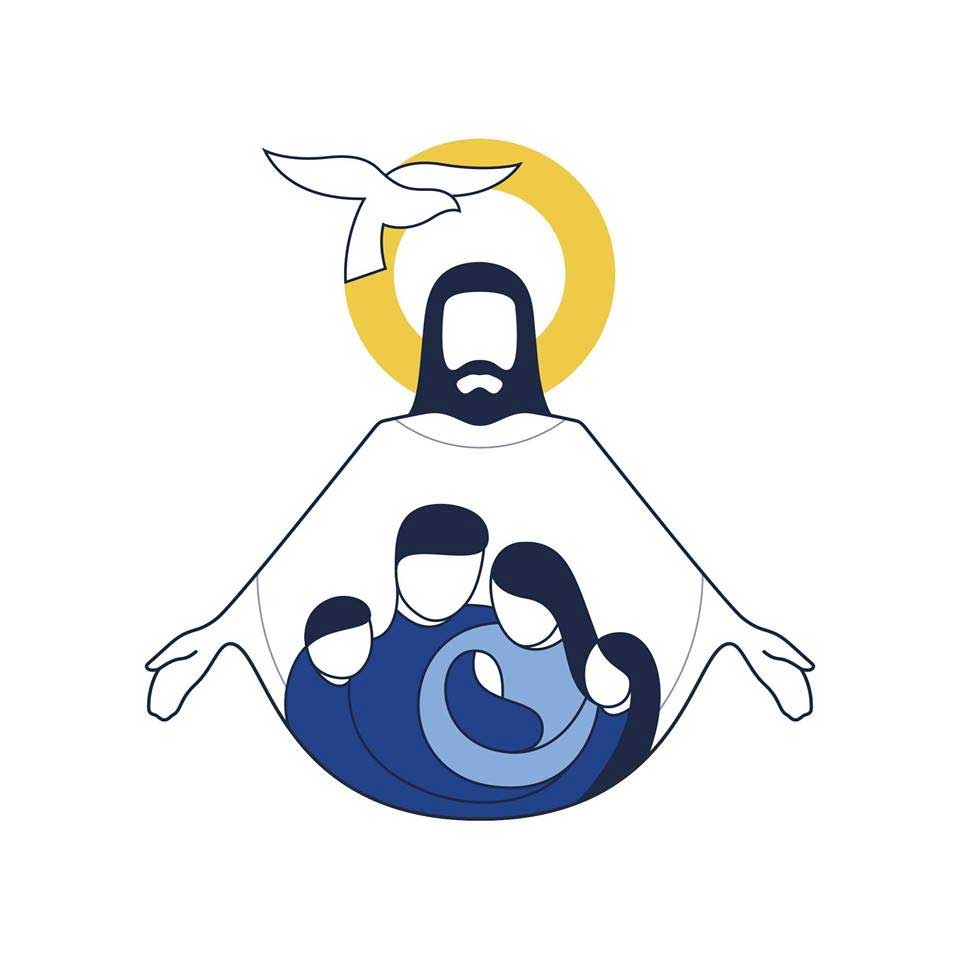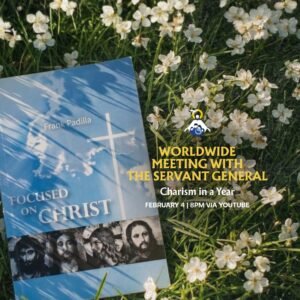FROM THE SERVANT GENERAL
THE CALL TO HOLINESS
(Part 23)
THREE BASIC THINGS
April 30, 2020
Today’s readings:
Acts 8:26-40
Psalm 66:8-20
John 6:44-51
Christians are called to be holy as God is holy. How can we be holy? God gives us three basic things that are our foremost ways or means to growing in holiness. These are prayer, the Bible and the Eucharist. Today’s readings remind us of these.
First is prayer. The psalmist says that God “listened to my voice in prayer.” (Ps 66:19b). How does God hear us? How do we communicate with God? These happen basically by means of prayer. What are the things we say or bring to God in prayer? What are the things we can look forward to as we pray? What are basic aspects of prayer?
- In prayer we strive to come before God in righteousness. “Had I cherished evil in my heart, the Lord would not have heard.” (Ps 66:18). We come into the presence of a holy God. So one who prays everyday should be conscious of the condition of his heart and soul, and strive to live a life pleasing to God, thus prompting him to holiness.
- In prayer we praise and bless God. “I called to him with my mouth; praise was upon my tongue.” (Ps 66:17). “Bless our God, you peoples; loudly sound his praise.” (Ps 66:8). The most important part of prayer is adoration. We acknowledge who God is. To Him we owe worship. Our focus on God as such brings us to contemplate a holy God, who calls us to holiness.
- In prayer, we look to God’s mercy. “Blessed be God, who did not reject my prayer and refuse his mercy.” (Ps 66:20). Our salvation is all about God’s divine mercy. When we contemplate how we stray away from God, but how God always accepts us back as we repent, we should be led to strive not to offend Him, and live our lives in holiness.
- In prayer we call to mind God’s goodness and sustenance of our lives, and acknowledge God’s help in not allowing us to fall away. God is He “who has kept us alive and not allowed our feet to slip.”” (Ps 66:9). We cannot be holy apart from God’s grace. As we acknowledge that our lives are totally in God’s hands, that it is He who is in control, then we must desire to be the kind of people He desires, to be holy.
- In prayer we recognize that God does bring us to the test, and we acknowledge God’s chastisement and punishment. “You tested us, O God, tried us as silver tried by fire. You led us into a snare; you bound us at the waist as captives.” (Ps 66:10-11). We recognize that a holy God punishes sin, in His desire to bring us back to Himself. But we acknowledge that after our chastisement, it is God Himself who sets us free. “Then you led us out to freedom.” (Ps 66:12c). If God punishes sin and if God brings us to spiritual freedom, then we must want to please God by striving to be and to remain holy.
- In prayer we offer ourselves to God and aver our commitment to carry out what we promised when we were seeking His help. “I will bring burnt offerings to your house; to you I will fulfill my vows, which my lips pronounced and my mouth spoke in my distress.” (Ps 66:13-14). Why keep on sinning and then looking to God for help? We could actually avoid distress by living lives of holiness.
The second means for growing in holiness is the Bible. Philip instructed the Ethiopian eunuch through the scriptures. “Then Philip opened his mouth and, beginning with this scripture passage, he proclaimed Jesus to him.” (Acts 8:35). The way we know Jesus is by way of the Bible. Conversely, as St Jerome had said, ignorance of scripture is ignorance of Christ. So if we are to be holy, we need to imitate Christ. To imitate Jesus, we must know about his life and teachings. To know these, we must read, study and reflect on the very word of God in the Bible.
Most lay Catholics do not read the Bible. Many of those who do read do not have sufficient understanding of what they are reading. They need to be instructed. The Ethiopian eunuch “was reading the prophet Isaiah” (Acts 8:28b), and when asked by Philip if he understood what he was reading, he replied, “How can I, unless someone instructs me?” (Acts 8:31a).
How can we be instructed?
- First, by God Himself. Reading and understanding the Bible needs to be accompanied by prayer. We ask God for His wisdom. The Bible is His word after all, so He is the best One who can explain it. “It is written in the prophets: ‘They shall all be taught by God.’ Everyone who listens to my Father and learns from him comes to me.” (Jn 6:45).
- By means of our MFC formation program. All our teachings are very much Bible-based. So we learn about the various topics but also get into important passages in the Bible. And verses in the Bible take on meaning as we look at them in the context of our overall life in Christ as taught by our community.
- By discussing Bible passages in our households and also by doing LBS. By means of both, we are able to instruct each other. Here we are able to share life experiences that give life to Bible verses.
- By looking to Internet resources, of which there are many.
- By reading my “From the SG” articles as well as my books. All are very much scripture-based. Every book has lots of Bible quotations. And these articles and books are of course all about our life and mission in community, with the underlying thread that is the call to holiness.
The third means for growing in holiness is the Eucharist. To be holy is to be like Christ. How much more if it is not only our being and our outer person that are conformed to Christ, but if we actually take in the body and blood of Jesus?
We pray to and we read the words of God in the Bible, and with these we are blessed. But as intimate as we might become with God, we have not seen God. “Not that anyone has seen the Father except the one who is from God; he has seen the Father.” (Jn 6:46). The world had seen the living Jesus; we today have not. But in a way we today are much more fortunate than those who actually lived and worked with Jesus, in that today we can receive his very body and blood, in the Eucharist. “The bread that I will give is my flesh for the life of the world.” (Jn 6:51b). Jesus then does not just walk with us, he does not just live in us in spirit, but he physically resides in our bodies, which are temples of the Holy Spirit. To contain a holy God, we must be holy ourselves.
The Eucharist is our assurance of eternal life. Faith in Jesus of course is the basic. “Amen, amen, I say to you, whoever believes has eternal life.” (Jn 6:47). But Holy Communion is the defining factor. “I am the living bread that came down from heaven; whoever eats this bread will live forever” (Jn 6:51a). Only the holy will enter heaven.
Prayer brings us into the presence of God, the Bible brings God into our presence, and the Eucharist brings God and man in intimate communion. All three are designed, and crucial, to having us grow in holiness.








